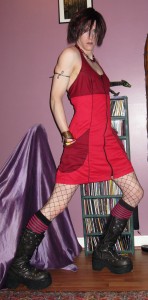As part of a transgender and non-binary panel discussion I recently participated in, we received some challenging comments/questions about transgender individuals in sports, feminism & youth transition. They seem to reflect popular topics in news and social media, and may be questions a lot of non-trans people have, so I’m sharing a distilled version of the questions, along with my complete responses here. See also related media links at the end. Questions:
- Should transgender athletes be allowed in gender-separated sports?
- Maybe transgender should be its own sports category?
- Is it “unfair” (due to biology or hormones) for transgender athletes to compete?
- When should transgender youth start hormones or surgery?
- Do transgender individuals fit in with feminism and the feminist movement?
- Don’t “biological women” experience unique challenges & trauma in patriarchal societies, due to their physiology?


